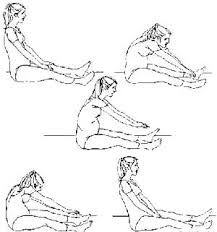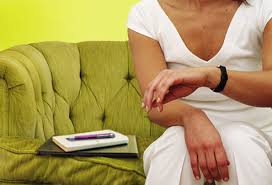This is second part of my blog on Reason behind frequent Urination.
If you find yourself annoyed by the number of trips that you are taking to the bathroom, then it may be time to talk to your doctor about frequent urination problems.
Blog 1-Reason behind frequent Urination - Causes and Treatments
When to see doctor?
Because of the complexity of the process of urination, the cause of frequent urination can be neurological, physical, or, even psychological, so your doctor will need to perform a thorough diagnosis. To do this, he or she will carry out a physical exam, and ask questions to establish your medical history and gather information about the symptoms you are experiencing.

They may ask about:
The pattern of frequent urination (when did it start, how does it compare with what you consider to be normal, is it happening during the day only, or night time only, or both?)
Current medications.
Any other symptoms.
How much fluid you drink: is it more or less than usual?
Whether you have noticed any changes in your urine (eg color, smell).
How much caffeine and alcohol you consume and whether this has changed recently.
After considering your medical history, and depending on what he or she discovers in the physical exam, your doctor may ask you to undergo some tests, such as:
Urine analysis: to determine whether any abnormal compounds are present.
Imaging tests: to look inside the body.
Neurological tests: to see if a nerve disorder is present.
Urodynamic tests: to examine how well the bladder, sphincters, and urethra are storing and releasing urine.
Urodynamic tests range from simple observation to precise measurements using sophisticated equipment. Simple observations include for example recording the time it takes to produce a urinary stream, noting the amount of urine produced, and the ability to stop mid-stream.
Precise measurements include, for example, using imaging equipment to observe the bladder filling and emptying, using monitors to measure pressure inside the bladder, and using sensors to record muscle and nerve activity.
Most urodynamic tests do not need special preparation, though some may require you to make a change in fluid intake, or stop taking certain medications. You may also be asked to arrive at the clinic with a full bladder.
Treatment
The importance of seeing your doctor and getting a diagnosis is to establish the underlying cause of frequent urination. That will then decide the treatment.
For example, if the cause is diabetes, then the treatment will be for diabetes, the aim of which is to keep blood sugar under control. If the cause is a kidney infection, then the treatment usually comprises a course of antibiotics and possibly painkillers too.
If the cause is an overactive bladder, then there are several recommended medications, which in conjunction with behavioral techniques, can increase the chances of successful treatment. The most common medications are anticholinergics, which target the overactivity of the detrusor muscle. They should only be used under the direction of the prescribing physician and they can have side effects, such as dry mouth, constipation, blurred vision and confusion (in the elderly).
Other treatments include:
Kegel exercises

These are regular daily exercises strengthen the muscles of the pelvis and urethra and support the bladder. It is important to learn the correct technique and practise at the recommended frequency (at least 30 to 80 times a day for at least 8 weeks).
These are regular daily exercises strengthen the muscles of the pelvis and urethra and support the bladder. It is important to learn the correct technique and practise at the recommended frequency (at least 30 to 80 times a day for at least 8 weeks).
Biofeedback

Used with with Kegel exercises, this helps improve awareness and control of pelvic muscles.
Used with with Kegel exercises, this helps improve awareness and control of pelvic muscles.
Bladder training

The aim is to train the bladder to hold urine longer and thus urinate less often. It involves increasing the period between visits to the toilet to empty the bladder and is done gradually over two to three months.
The aim is to train the bladder to hold urine longer and thus urinate less often. It involves increasing the period between visits to the toilet to empty the bladder and is done gradually over two to three months.
Monitoring fluid intake

For instance, it could be that drinking before bedtime is the main cause of frequent urination.
For instance, it could be that drinking before bedtime is the main cause of frequent urination.
Changing diet

To avoid foods that irritate the bladder or act as a diuretic, for instance caffeine, alcohol, chocolate, spicy foods, artificial sweeteners. Eating high-fiber foods can help reduce the constipation that worsens an overactive bladder.
To avoid foods that irritate the bladder or act as a diuretic, for instance caffeine, alcohol, chocolate, spicy foods, artificial sweeteners. Eating high-fiber foods can help reduce the constipation that worsens an overactive bladder.
No comments:
Post a Comment